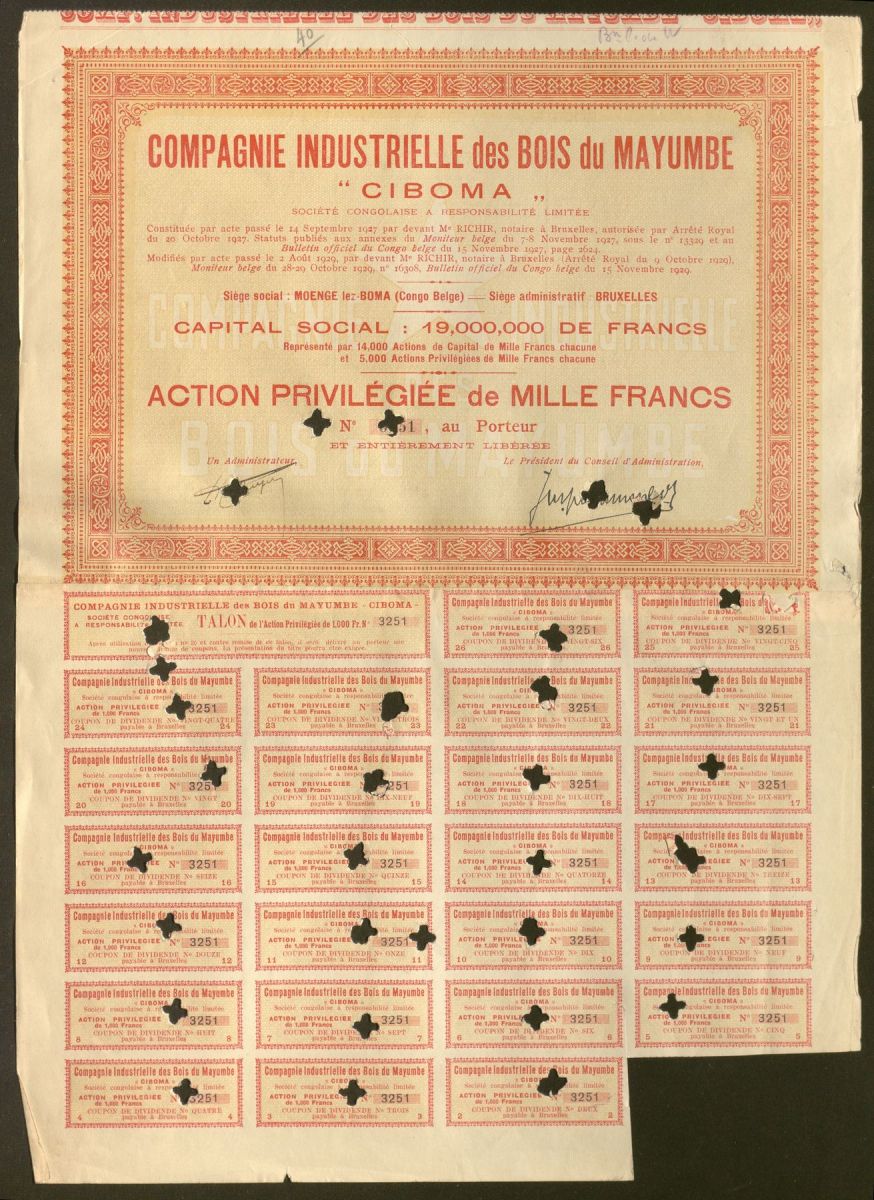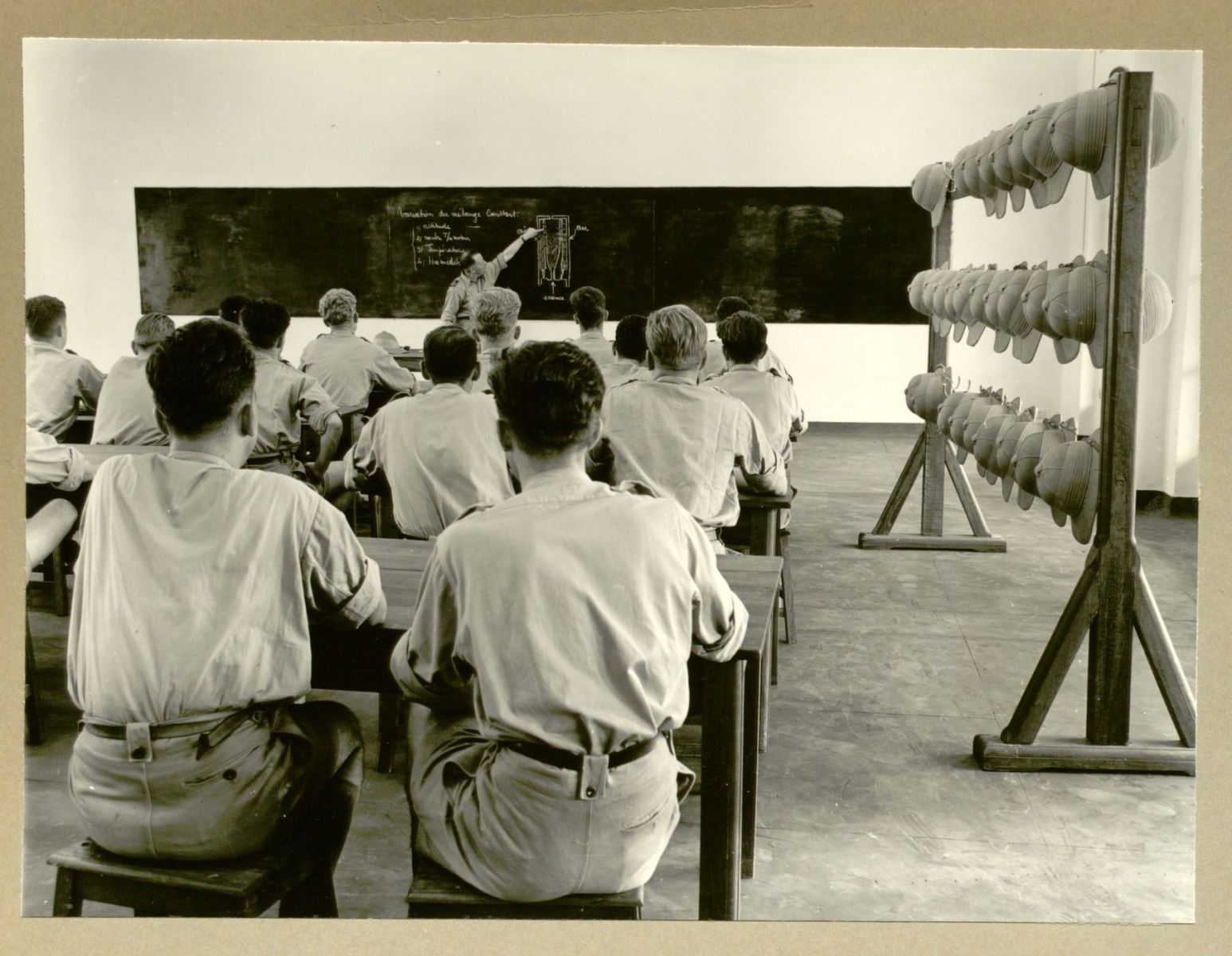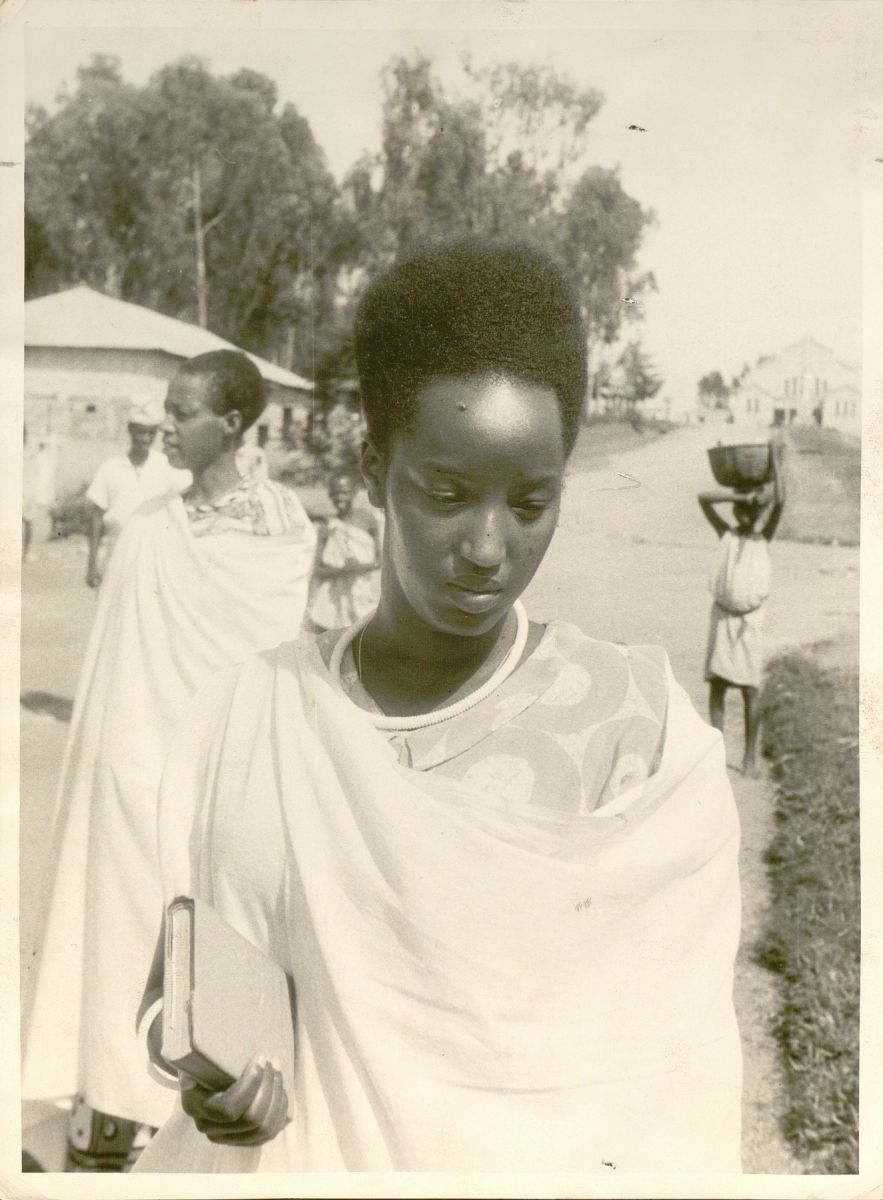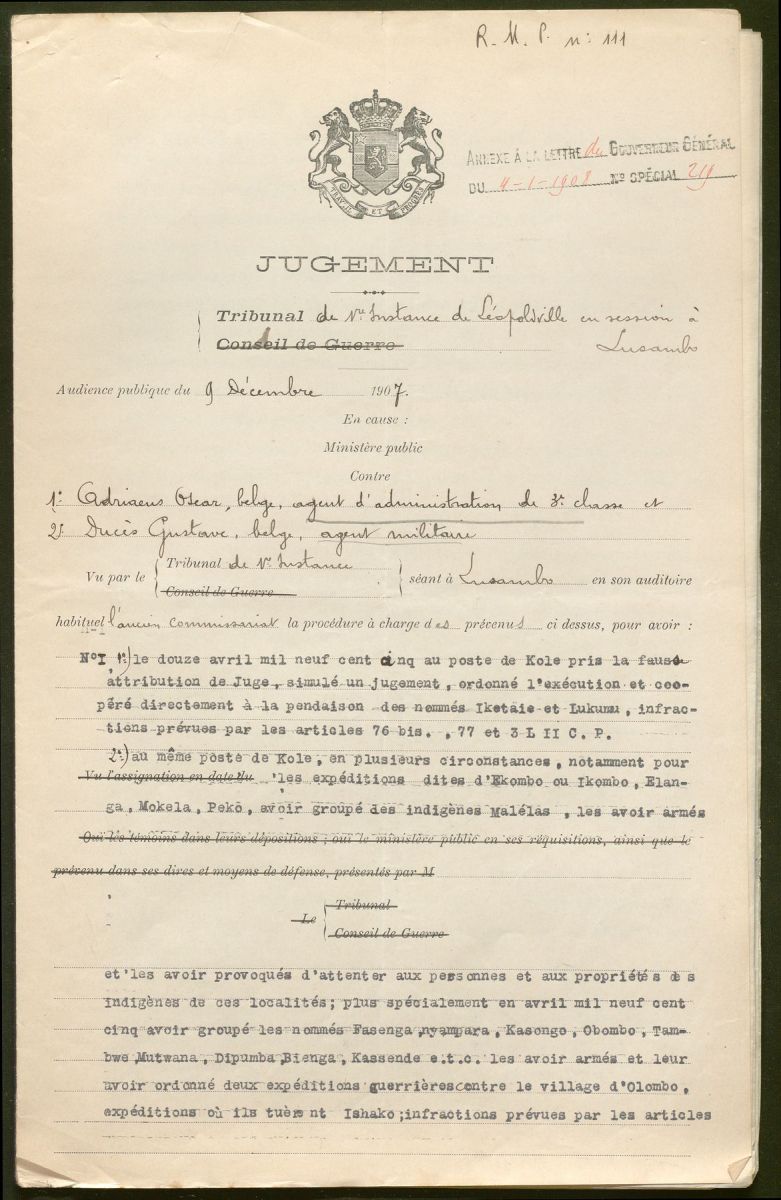The archives about the colonisation constitute a common cultural heritage that must be shared diligently. They are just as much part of Belgian history as of Congolese, Rwandan and Burundian history. The first step in opening up these records is to get a better understanding of them and to considerably improve access to them. To this end, the sources guide to the history of colonisation (Guide des sources de l’histoire de la colonisation) published in 2021 in collaboration with the AfricaMuseum is available online and places the archives about the Belgian colonial era in the international debate, while posing sensitive questions about the sharing of cultural heritage, about the return of archives to Africa and the construction of the memory.
Besides publishing this key research instrument, the State Archives continues its work of opening of the colonial archives through various projects under the direction of Pierre-Alain Tallier (acting Head of Department Brussels) :
- Transfer of the “Africa Archives”
- Project “Résolution-Métis”
- Project FED-tWIN “SHARE” (Supply a Fair and Transparent Access to a shared Heritage - “the Africa Archives” - to implement Decolonised Research about Belgian colonisation in Congo, Rwanda and Burundi (1885-1962))
- Project FED-tWIN “Gusangira”
- Project “Rwanda Archives”
- Project “DigiColJust”. Colonial Violence, Subaltern Agency and Shared Archival Heritage
- Project “CoffeeBridge”
- Project “BiblioCongo”: A bibliography of the history of Belgian Congo and Rwanda-Urundi
- Training of African archivists:
For a decade now, the AfricaMuseum has been training African archivists in collaboration with the State Archives of Belgium within the framework of the Belgian development cooperation. This training includes theoretical courses (initially taught in Tervuren, and now at École du Patrimoine Africain (Porto-Novo, Benin)) and an immersion internship in archive services in Belgium. The State Archives also regularly welcomes trainees.











